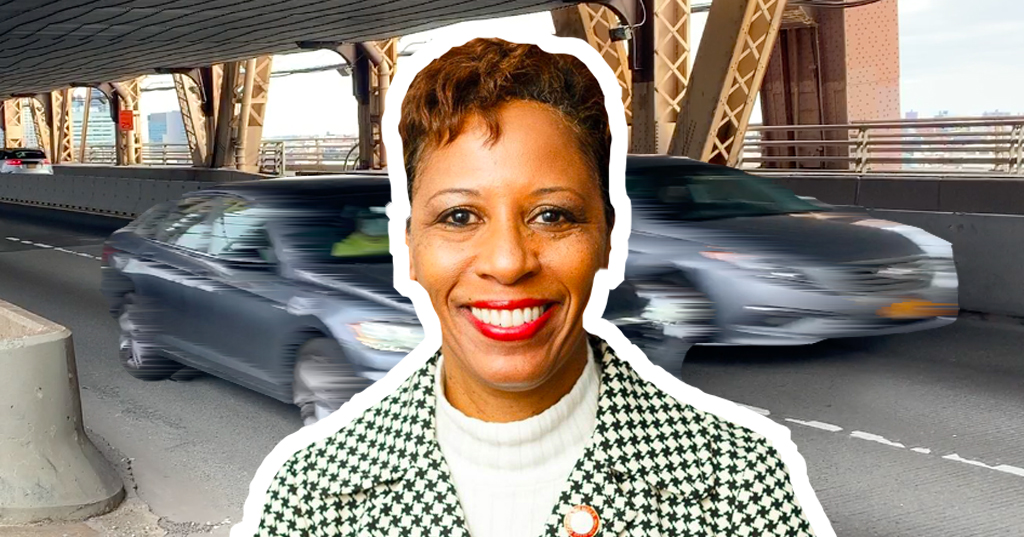Not so fast.
Council Speaker Adrienne Adams said on Thursday that the Council may not bother to lower speed limits in the city, even though she and her colleagues sought that very right from the state legislature.
Asked by Streetsblog whether the Council will draft a bill to lower the speed limit to 20 miles per hour, Adams said, "The bill is very, very significant to this Council. And each Council member is going to have to weigh in on how they feel it should be enacted or should not be enacted in their district."
It was the "should not be enacted" part that raised eyebrows among activists — given that the Council had sent a "home rule" message to the legislature last year seeking the authority to set New York City's speed limit itself.
"New York City fought for a decade to win the right to lower the speed limit, and it’s a fact that lower speeds save lives — the last thing we need is to poll Council Members or civic associations or avid drivers about what the speed limit should be," said Eric McClure, executive director of StreetsPAC, the political action committee that supports candidates in favor of safe streets.
Elizabeth Adams of Transportation Alternatives also expressed surprise.
"We know lower speed limits work, save lives, and prevent injuries [so] we hope to see Council, Department of Transportation, and the Adams administration move forward with a comprehensive, data-driven plan for the implementation of Sammy's Law," she said, citing "record levels of traffic fatalities this year.
"Our elected officials, need every tool in our toolbox to save lives and prevent injuries. We can't afford to wait," she added.
A longtime Albany supporter of Sammy's Law was surprised at Adams's words, given the Council's home-rule message helped push "Sammy's Law" over the finish line this year.
"We fought tirelessly to pass Sammy's Law because we know lower speed limits are a crucial tool to keep New Yorkers safe on our streets," said state Senator Andrew Gounardes (D-Bay Ridge). "I encourage New York City to take full advantage of its new powers to set speed limits and save lives across the city."
After her general comment, Adams was asked if she would personally like to see the speed limit dropped.
"That's something for me to discuss with the community, in different meetings with civic associations with block associations and with community residents," she said.
Both comments gave McClure the impression that Adams may have been suggesting that individual Council members could exempt their districts from a wider city-wide speed limit reduction. He cautioned against such an approach.
"It would be incredibly chaotic and dangerous to vary speed limits by Council district, and again, we know that slower is safer, and safer is better," he said. "A uniform 20 mph across the city is the only answer here."
Unfortunately, that answer can only be achieved through Council action. The Department of Transportation has said that Sammy's Law — named after Sammy Cohen Eckstein, who was killed by a driver on Prospect Park West in 2013 — does not give the agency the power to set the citywide speed limit, though the agency has already started the process of reducing speed limits on a handful of blocks in front of schools, as well as three longer stretches.
The agency also said it would consider creating a "regional slow zone" south of Canal Street in Manhattan, but that proposal has yet to be presented to the area community board.
Another Albany supporter of Sammy's Law did not express immediate concern about Speaker Adams's comments, saying that giving the Council the power to do what it wants to do is "what Sammy's Law is essentially about."
But state Sen. Brad Hoylman-Sigal (D-West Side) added that he is "confident the Council will take advantage of this new power soon" and cheered the DOT for the slow zone proposal.






